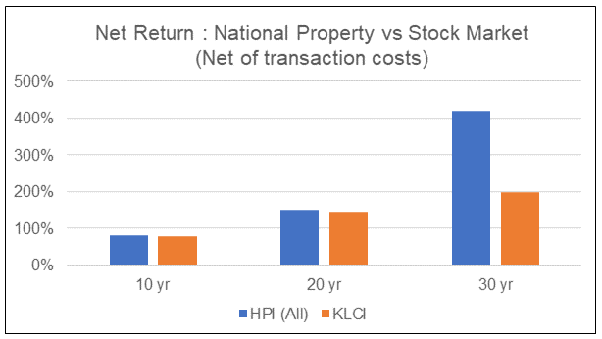
Of course, the differences between direct real-estate investment and investing into a REIT are often very significant. This article will talk about both income potential and cost efficiency. This way, you can determine which investment method will be most beneficial for you. Read on to learn more! Here are the pros and cons of each type of investment vehicle. If you are considering making a real estate investment, consider investing in a REIT.
Investing with a REIT
It is worth considering the advantages and disadvantages to owning shares in REITs as well as directly owning real estate properties when you think about real-estate investments. While both types of investments can provide recurring income and are viable, there are many differences between REITs versus directly-owned properties. You can be creative with the design of your property, selecting the tenants you want, and so forth. Although investing in REITs doesn't allow for this degree of control, it can provide an emotional investment and a sense of pride.

Investing in a direct real estate investment
Investing in a direct real estate property gives you the freedom to choose the exact properties that fit your preferences. Direct real estate investors have the ability to set rental rates, select tenants, and choose how many properties they want to purchase. You can also refinance a mortgage to lower interest rates and tap into the equity in your home, if needed. As a direct real estate investor, however, you are also responsible for liability issues and tenant problems.
Cost efficiency
A cost segregation analysis is a key component of determining the overall cost efficiency a real-estate investment trust (REIT). This strategy could be beneficial for a REIT as it reduces its dividend obligation due to increased depreciation combined with lower distribution requirements. In addition, cost segregation allows management to buy only the insurance coverage that it needs to cover the value of its assets.
Income
There are several benefits to earning income from real estate. Renting your property is one way to achieve this traditional goal. This can be done in single-family homes or multifamily properties. This income will pay your mortgage and other housing expenses. Either you or a property manager company can rent out your property. Here are some of the most popular types of real estate you can rent out.

Taxes
Owning a REIT has many tax benefits that have been around for a long time. These benefits continue to grow in line with new federal tax rules. A large number of deductions are some of the major advantages that REITs provide over directly owned property. A neglected provision in tax law permits you to deduct REIT income as part of your taxable income. This is particularly useful for investors who have higher incomes. These are some of the additional tax advantages of REITs.
FAQ
What is the difference between the securities market and the stock market?
The whole set of companies that trade shares on an exchange is called the securities market. This includes options, stocks, futures contracts and other financial instruments. Stock markets are usually divided into two categories: primary and secondary. Stock markets are divided into two categories: primary and secondary. Secondary stock markets are smaller exchanges where investors trade privately. These include OTC Bulletin Board Over-the-Counter and Pink Sheets as well as the Nasdaq smallCap Market.
Stock markets are important because they provide a place where people can buy and sell shares of businesses. It is the share price that determines their value. When a company goes public, it issues new shares to the general public. Dividends are received by investors who purchase newly issued shares. Dividends are payments made by a corporation to shareholders.
Stock markets provide buyers and sellers with a platform, as well as being a means of corporate governance. Shareholders elect boards of directors that oversee management. They ensure managers adhere to ethical business practices. In the event that a board fails to carry out this function, government may intervene and replace the board.
What is a REIT and what are its benefits?
An entity called a real estate investment trust (REIT), is one that holds income-producing properties like apartment buildings, shopping centers and office buildings. These publicly traded companies pay dividends rather than paying corporate taxes.
They are similar companies, but they own only property and do not manufacture goods.
What are the benefits to investing through a mutual funds?
-
Low cost - purchasing shares directly from the company is expensive. It's cheaper to purchase shares through a mutual trust.
-
Diversification – Most mutual funds are made up of a number of securities. The value of one security type will drop, while the value of others will rise.
-
Professional management - professional managers make sure that the fund invests only in those securities that are appropriate for its objectives.
-
Liquidity is a mutual fund that gives you quick access to cash. You can withdraw the money whenever and wherever you want.
-
Tax efficiency - mutual funds are tax efficient. Because mutual funds are tax efficient, you don’t have to worry much about capital gains or loss until you decide to sell your shares.
-
Buy and sell of shares are free from transaction costs.
-
Mutual funds can be used easily - they are very easy to invest. You only need a bank account, and some money.
-
Flexibility - You can modify your holdings as many times as you wish without paying additional fees.
-
Access to information - you can check out what is happening inside the fund and how well it performs.
-
Investment advice – you can ask questions to the fund manager and get their answers.
-
Security - you know exactly what kind of security you are holding.
-
Control - The fund can be controlled in how it invests.
-
Portfolio tracking – You can track the performance and evolution of your portfolio over time.
-
Easy withdrawal: You can easily withdraw funds.
There are some disadvantages to investing in mutual funds
-
Limited investment options - Not all possible investment opportunities are available in a mutual fund.
-
High expense ratio. The expenses associated with owning mutual fund shares include brokerage fees, administrative costs, and operating charges. These expenses eat into your returns.
-
Lack of liquidity: Many mutual funds won't take deposits. They must only be purchased in cash. This limits the amount that you can put into investments.
-
Poor customer service - There is no single point where customers can complain about mutual funds. Instead, contact the broker, administrator, or salesperson of the mutual fund.
-
High risk - You could lose everything if the fund fails.
How Share Prices Are Set?
The share price is set by investors who are looking for a return on investment. They want to make money from the company. So they purchase shares at a set price. Investors make more profit if the share price rises. Investors lose money if the share price drops.
Investors are motivated to make as much as possible. This is why they invest into companies. They can make lots of money.
What is the distinction between marketable and not-marketable securities
Non-marketable securities are less liquid, have lower trading volumes and incur higher transaction costs. Marketable securities, on the other hand, are traded on exchanges and therefore have greater liquidity and trading volume. They also offer better price discovery mechanisms as they trade at all times. However, there are some exceptions to the rule. Some mutual funds, for example, are restricted to institutional investors only and cannot trade on the public markets.
Non-marketable securities can be more risky that marketable securities. They generally have lower yields, and require greater initial capital deposits. Marketable securities tend to be safer and easier than non-marketable securities.
For example, a bond issued by a large corporation has a much higher chance of repaying than a bond issued by a small business. Because the former has a stronger balance sheet than the latter, the chances of the latter being repaid are higher.
Because they are able to earn greater portfolio returns, investment firms prefer to hold marketable security.
How does inflation affect the stock market
Inflation is a factor that affects the stock market. Investors need to pay less annually for goods and services. As prices rise, stocks fall. Stocks fall as a result.
Statistics
- "If all of your money's in one stock, you could potentially lose 50% of it overnight," Moore says. (nerdwallet.com)
- Even if you find talent for trading stocks, allocating more than 10% of your portfolio to an individual stock can expose your savings to too much volatility. (nerdwallet.com)
- Ratchet down that 10% if you don't yet have a healthy emergency fund and 10% to 15% of your income funneled into a retirement savings account. (nerdwallet.com)
- US resident who opens a new IBKR Pro individual or joint account receives a 0.25% rate reduction on margin loans. (nerdwallet.com)
External Links
How To
How to Open a Trading Account
The first step is to open a brokerage account. There are many brokerage firms out there that offer different services. Some charge fees while others do not. Etrade is the most well-known brokerage.
Once you have opened your account, it is time to decide what type of account you want. Choose one of the following options:
-
Individual Retirement accounts (IRAs)
-
Roth Individual Retirement Accounts
-
401(k)s
-
403(b)s
-
SIMPLE IRAs
-
SEP IRAs
-
SIMPLE 401(k).
Each option comes with its own set of benefits. IRA accounts have tax advantages but require more paperwork than other options. Roth IRAs give investors the ability to deduct contributions from taxable income, but they cannot be used for withdrawals. SIMPLE IRAs and SEP IRAs can both be funded using employer matching money. SIMPLE IRAs are very simple and easy to set up. Employers can contribute pre-tax dollars to SIMPLE IRAs and they will match the contributions.
Finally, you need to determine how much money you want to invest. This is also known as your first deposit. Most brokers will offer you a range deposit options based on your return expectations. For example, you may be offered $5,000-$10,000 depending on your desired rate of return. This range includes a conservative approach and a risky one.
After you've decided which type of account you want you will need to choose how much money to invest. Each broker has minimum amounts that you must invest. These minimum amounts vary from broker-to-broker, so be sure to verify with each broker.
Once you have decided on the type of account you would like and how much money you wish to invest, it is time to choose a broker. Before selecting a brokerage, you need to consider the following.
-
Fees - Make sure that the fee structure is transparent and reasonable. Many brokers will offer trades for free or rebates in order to hide their fees. Some brokers will increase their fees once you have made your first trade. Be wary of any broker who tries to trick you into paying extra fees.
-
Customer service – You want customer service representatives who know their products well and can quickly answer your questions.
-
Security - Choose a broker that provides security features such as multi-signature technology and two-factor authentication.
-
Mobile apps - Find out if your broker offers mobile apps to allow you to view your portfolio anywhere, anytime from your smartphone.
-
Social media presence: Find out if the broker has a social media presence. If they don't, then it might be time to move on.
-
Technology - Does the broker use cutting-edge technology? Is it easy to use the trading platform? Are there any glitches when using the system?
Once you have selected a broker to work with, you need an account. Some brokers offer free trials. Others charge a small amount to get started. After signing up you will need confirmation of your email address. You will then be asked to enter personal information, such as your name and date of birth. Finally, you'll have to verify your identity by providing proof of identification.
After you have been verified, you will start receiving emails from your brokerage firm. These emails contain important information about you account and it is important that you carefully read them. This will include information such as which assets can be bought and sold, what types of transactions are available and the associated fees. Track any special promotions your broker sends. These could include referral bonuses, contests, or even free trades!
Next is opening an online account. An online account can be opened through TradeStation or Interactive Brokers. Both of these websites are great for beginners. You will need to enter your full name, address and phone number in order to open an account. After this information has been submitted, you will be given an activation number. You can use this code to log on to your account, and complete the process.
After opening an account, it's time to invest!